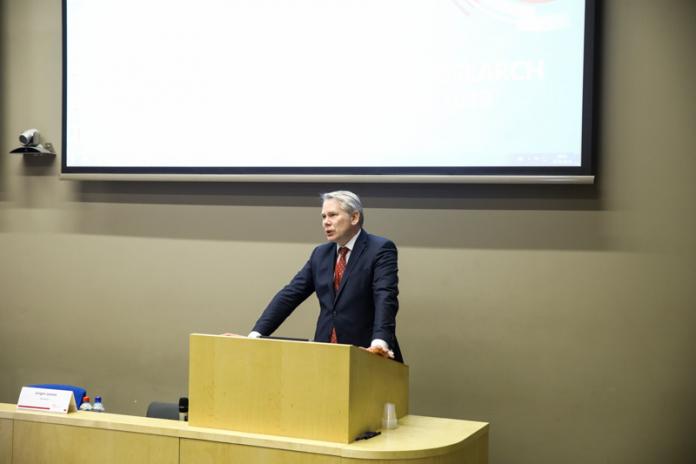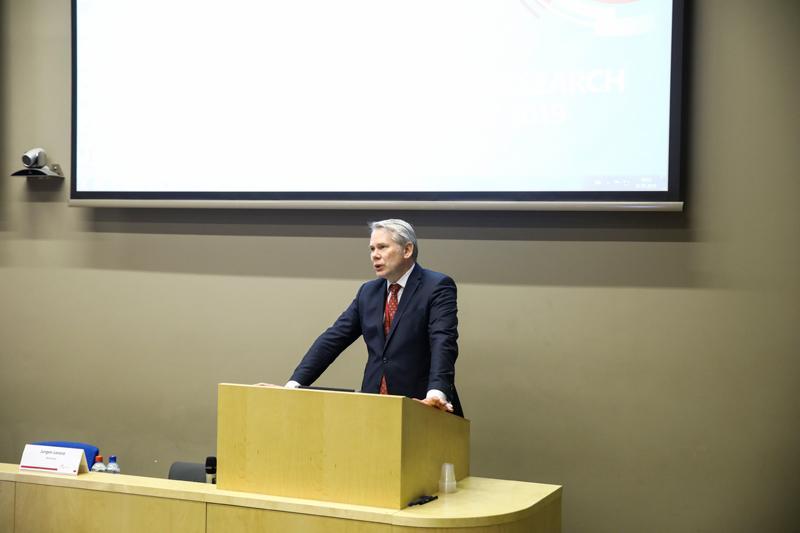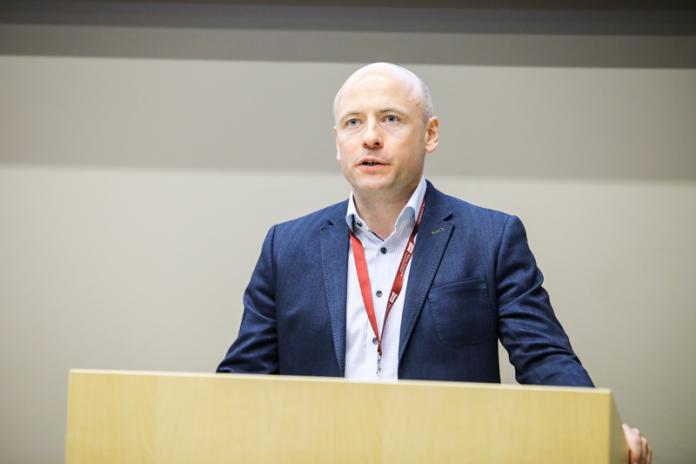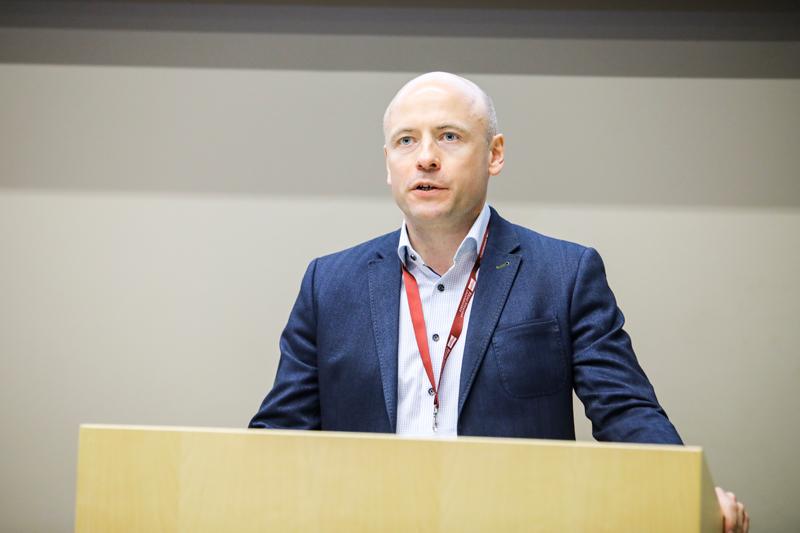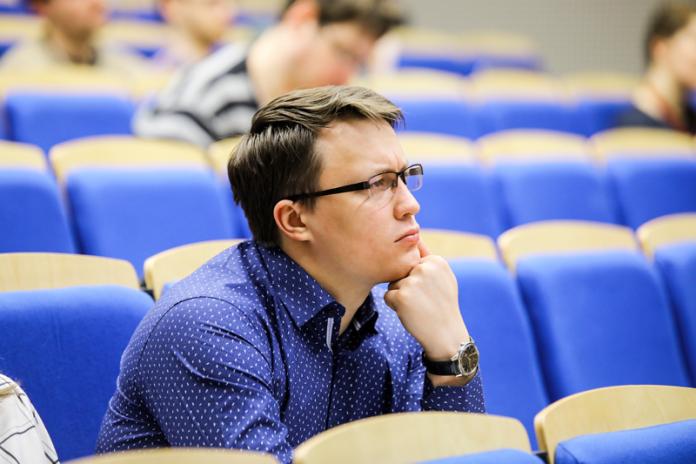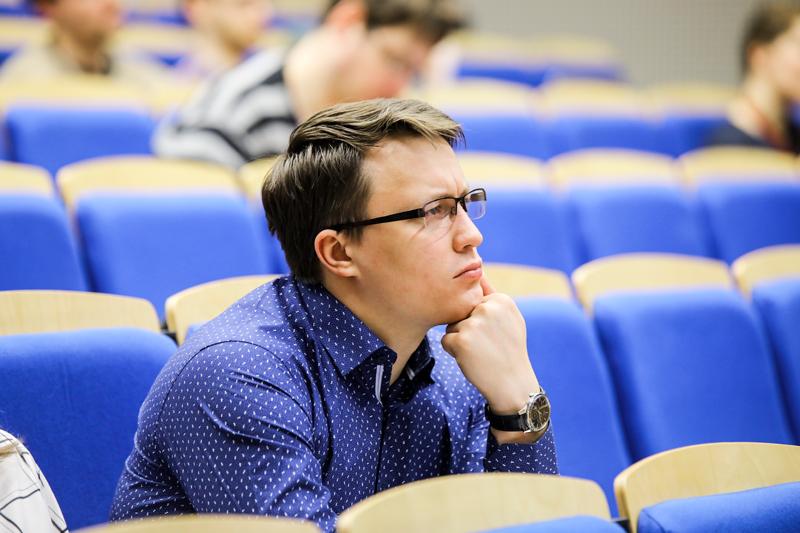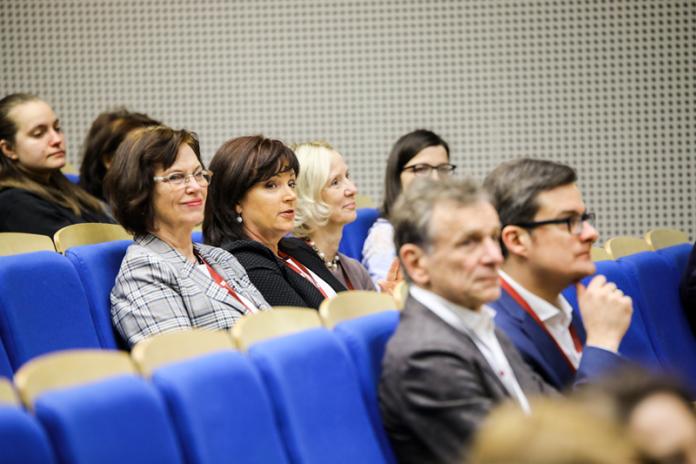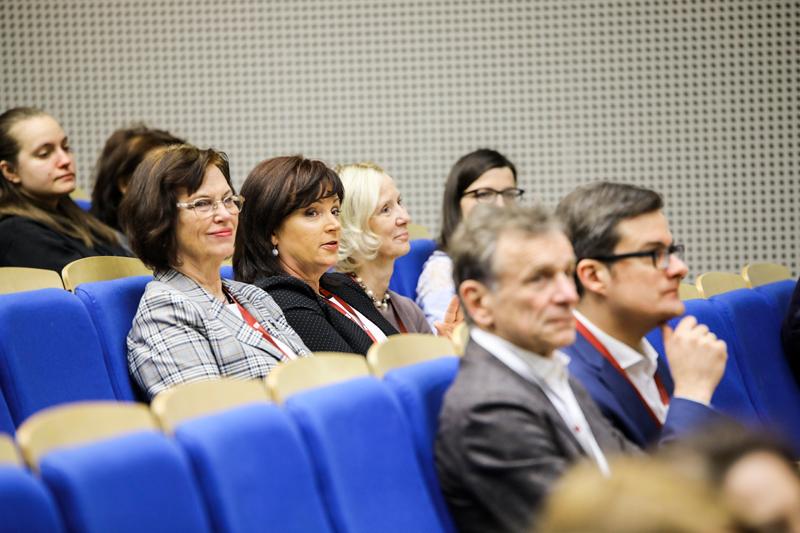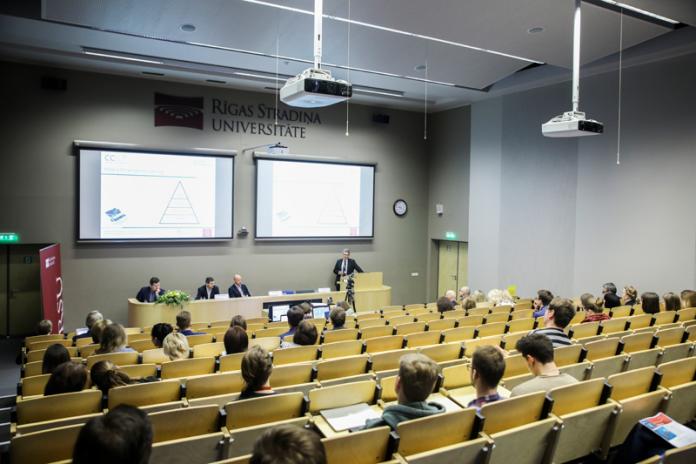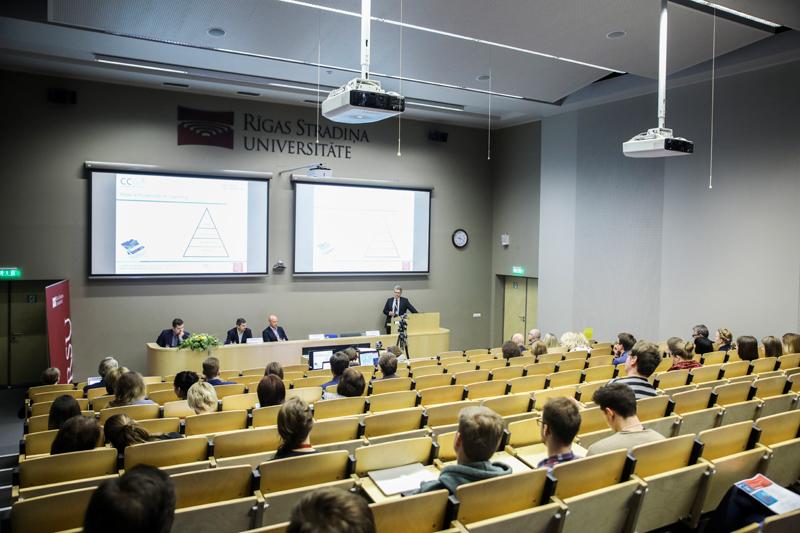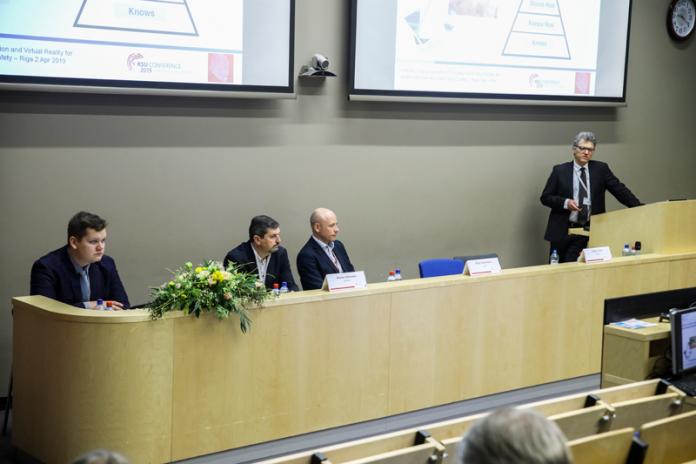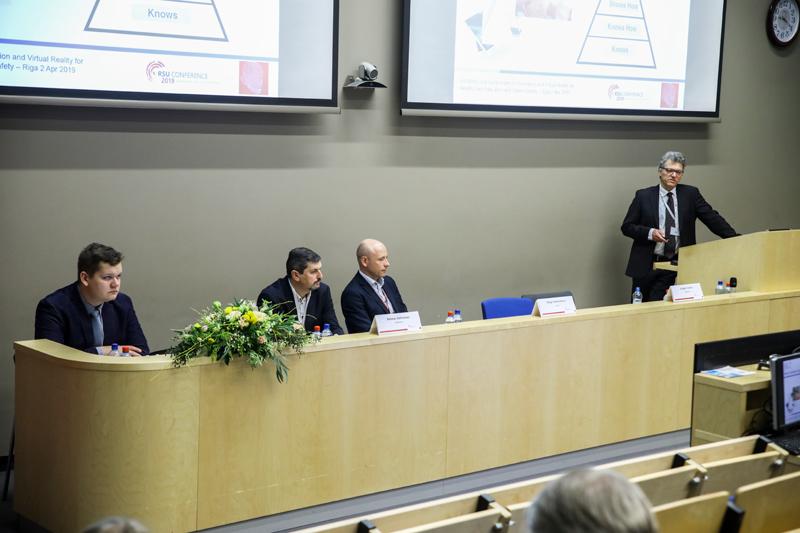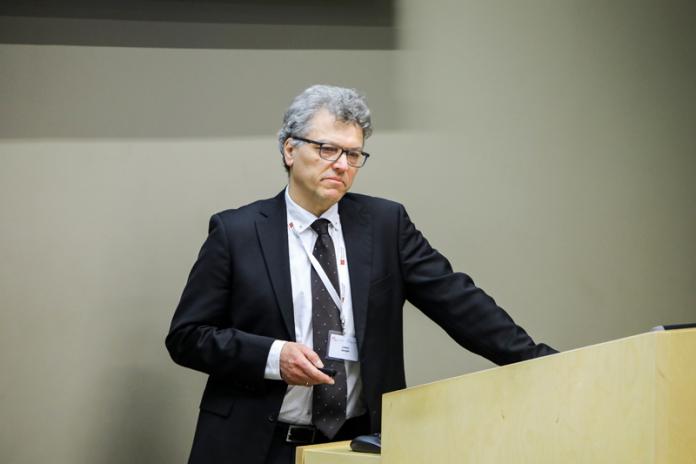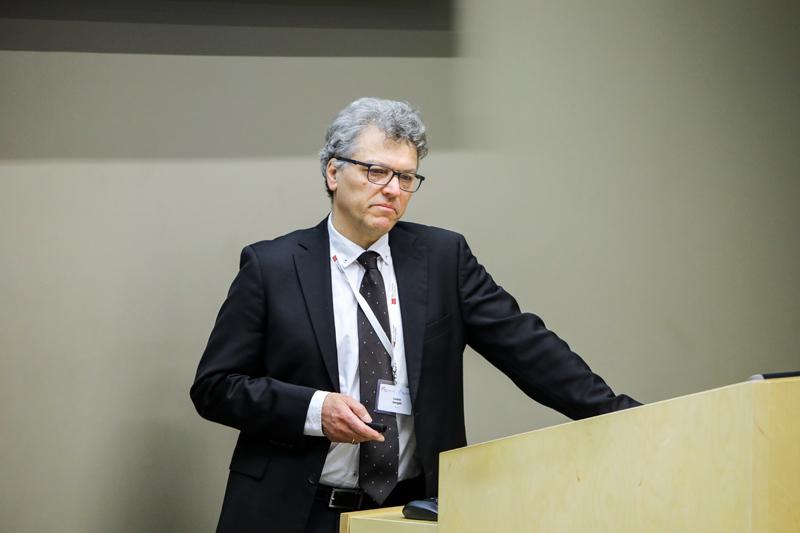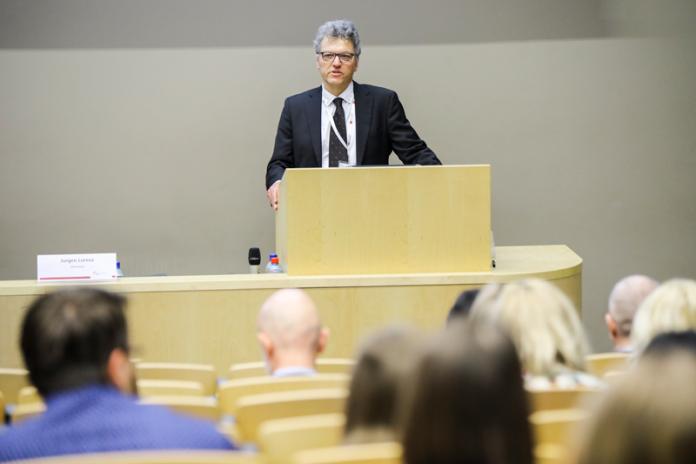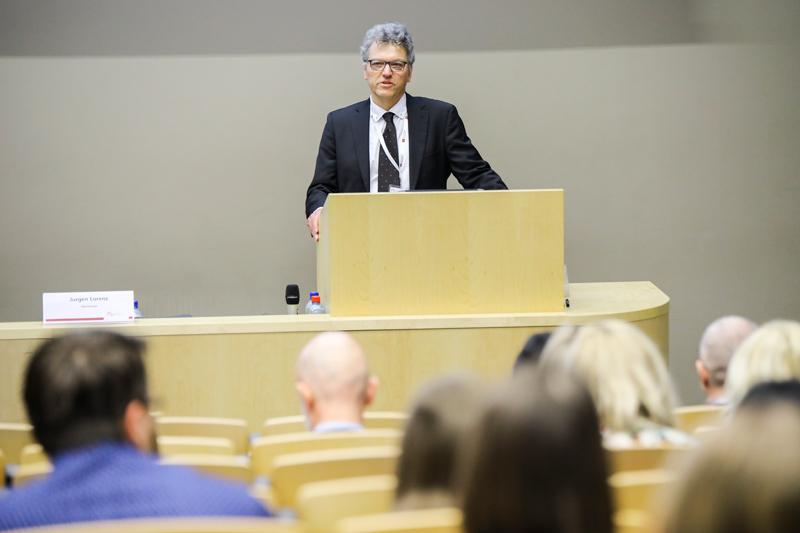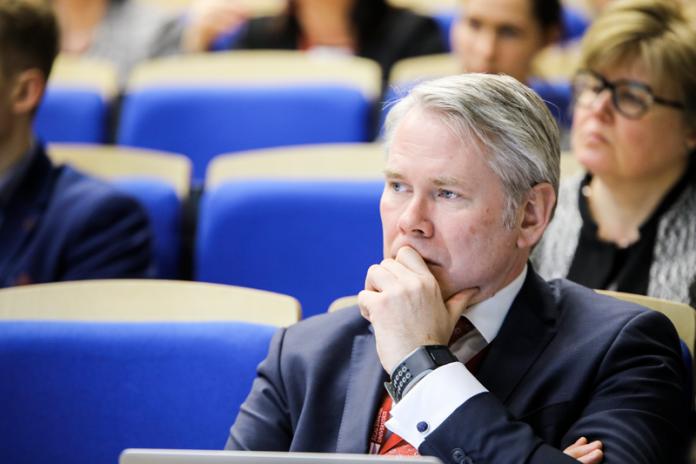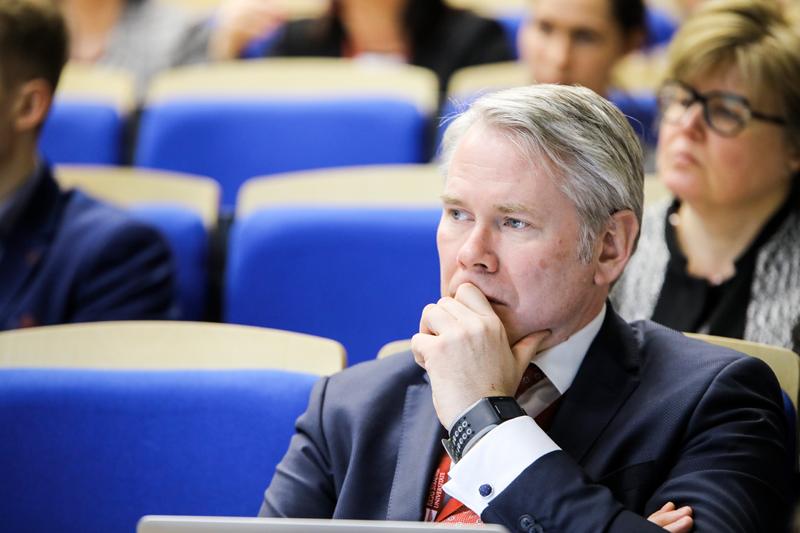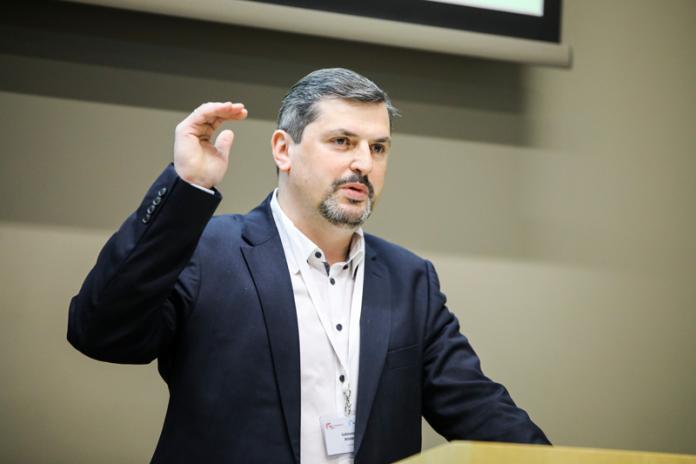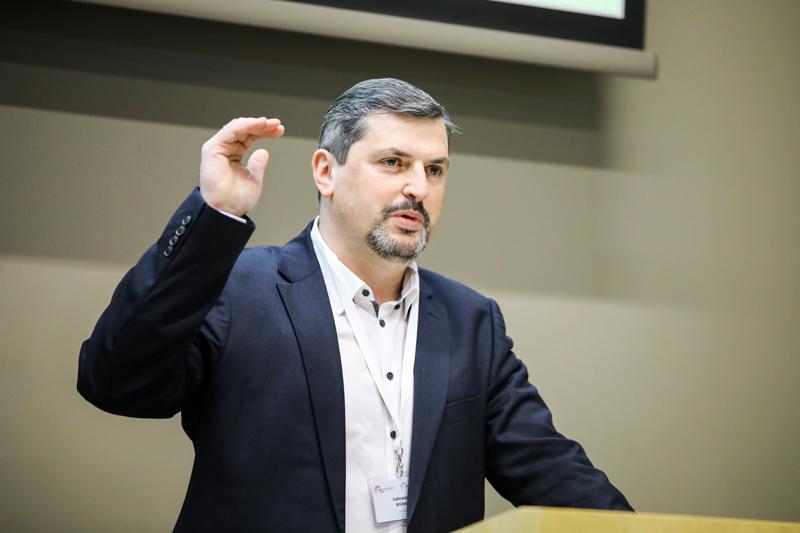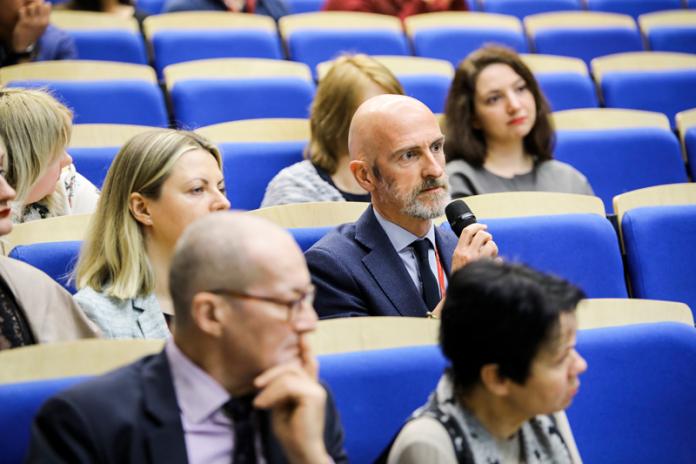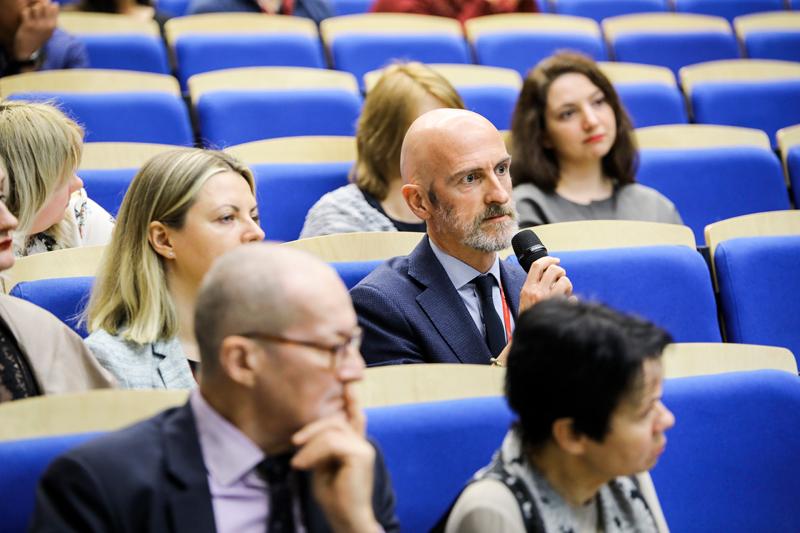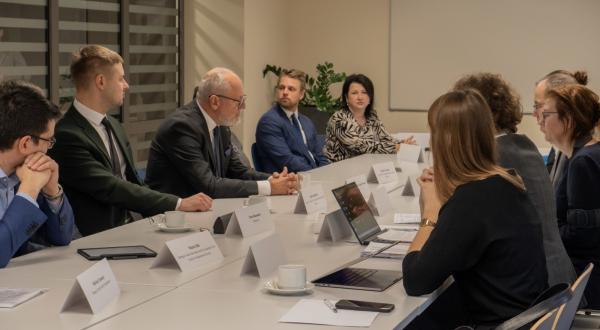International symposium gathers experts on simulation-based medical education
On 2 April the 3rd Baltic Sea Symposium on Simulation and Virtual Reality for Health Care Education and Patient Safety was held at the Medical Education Technology Centre (METC) of Rīga Stradiņš University (RSU). Participants from Latvia, Lithuania, Germany, Italy and other countries got acquainted with the latest equipment, methods and trends in the improvement of simulation-based study process.
‘”Safety” is the keyword of the seminar. Our efforts, knowledge, skills and up-to-date technologies are targeted towards strengthening patient safety,’ stressed RSU Vice-Rector for Health Studies Professor Guntis Bahs during his opening address. He wished the participants a productive symposium and hoped they would gain new experience.
Meanwhile Professor Jurgen Lorenz from Hamburg University of Applied Sciences explored the contribution of simulation-based medical education to society. For physicians this education means faster acquisition of skills, reduced levels of stress and psychological risk, and an opportunity to raise their self-esteem and self-confidence. While for patients it results in shorter procedure times, higher quality and eventually improved patient safety.
Professor Jurgen Lorenz has established close cooperation with RSU. In 2015 he worked as a lecturer at RSU for one semester and participated in the 1st Baltic Sea Symposium that was held in February 2016 at METC. The second symposium took place in Kaunas in 2017.
Next the Head of the Centre of Medical Simulation of the Lithuanian University of Health Sciences, Arūnas Gelmanas, reported on simulation scenarios used in the centre in Kaunas. This included teamwork training. The head of the RSU Department of Clinical Skills and Medical Technologies, Assistant Professor Oļegs Sabeļņikovs, followed with a report on the progress of RSU in the development of simulation-based medical education and various study courses offered to undergraduate and residency students as well as experienced physicians.
Several symposium participants stressed that METC is a unique simulation centre not only in the Baltic States, but also on a European level.
Several seminars were held within the framework of the symposium during which multiple simulation types and methods in various medical fields were analysed – for example, children’s trauma and provision of first aid. Seminar participants had the opportunity to try out METC simulation equipment thus improving their skills.
Within five years RSU has invested more than five million euros in the development of simulation-based learning – both their own resources as well as funding provided by European structural funds. The university has drafted a development system for preclinical and clinical simulations which are targeted not only towards undergraduate and residency students, but also experienced physicians and nurses who are willing to renew and upgrade their skills.
